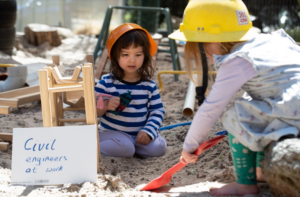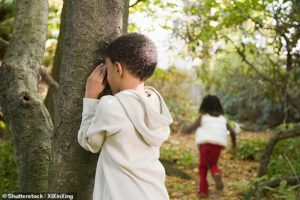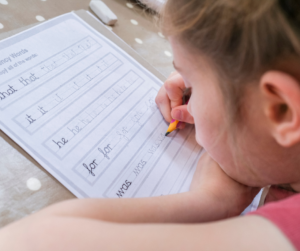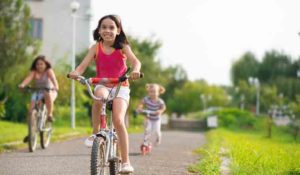Research into the importance of nature play, learning outdoors, risk-taking and children's mental and physical health and wellbeing forms the basis for the work we do.
Here you'll find the latest scientific research that shows the benefits of nature play for our children!
Use the Search function, or click on a keyword in Resource Categories to find research about a particular subject.
Grounded in cultural-historical theory, Playworlds is a model of play pedagogy where children and educators recreate a narrative through dramatization.
Read MoreThis study is the first human intervention trial in which urban environmental biodiversity was manipulated to examine its effects on the commensal microbiome and immunoregulation in children.
Read MoreThe purpose of this study was to examine whether extended use of a variety of screen-based devices, in addition to television, was associated with poor dietary habits and other health-related characteristics and behaviors among US adults. The recent phenomenon of binge-watching was also explored.
Read MoreStress reduction through contact with nature is well established, but far less is known about the contribution of contact parameters – duration, frequency, and nature quality. This study describes the relationship between duration of a nature experience (NE), and changes in two physiological biomarkers of stress – salivary cortisol and alpha-amylase.
Read MoreAging into later life is often accompanied by social disconnection, anxiety, and sadness. Negative emotions are self-focused states with detrimental effects on aging and longevity. Awe—a positive emotion elicited when in the presence of vast things not immediately understood—reduces self-focus, promotes social connection, and fosters prosocial actions by encouraging a “small self.”
Read MoreAcross the U.S., college and university students exhibit high levels of stress, anxiety, depression, and other mental health issues. While counseling, medications and, in more severe cases, hospitalization are all appropriate treatments for such conditions, an increasing body of evidence has demonstrated that spending time in nature can provide tangible benefits for mental health and well-being.
Read MoreTo write by hand, to type, or to draw – which of these strategies is the most efficient for optimal learning in the classroom? As digital devices are increasingly replacing traditional writing by hand, it is crucial to examine the long-term implications of this practice.
Read MoreEarly sustained middle childhood involvement in organized sport seems beneficial for the subsequent behavioral development of girls but no associations were found for boys. Middle childhood participation in structured venues that demand physical skill and effort with a coach or instructor may thus represent a valuable policy strategy to promote this aspect of behavioral development for girls.
Read MoreVisual perception depends fundamentally on statistical regularities in the environment to make sense of the world. One such regularity is the orientation anisotropy typical of natural scenes; most natural scenes contain slightly more canonical (horizontal and vertical) information than oblique information.
Read MoreTechnological developments in recent decades have increased young people’s engagement with screen-based technologies (screen time), and a reduction in young people’s contact with nature (green time) has been observed concurrently. This combination of high screen time and low green time may affect mental health and well-being.
Read More









